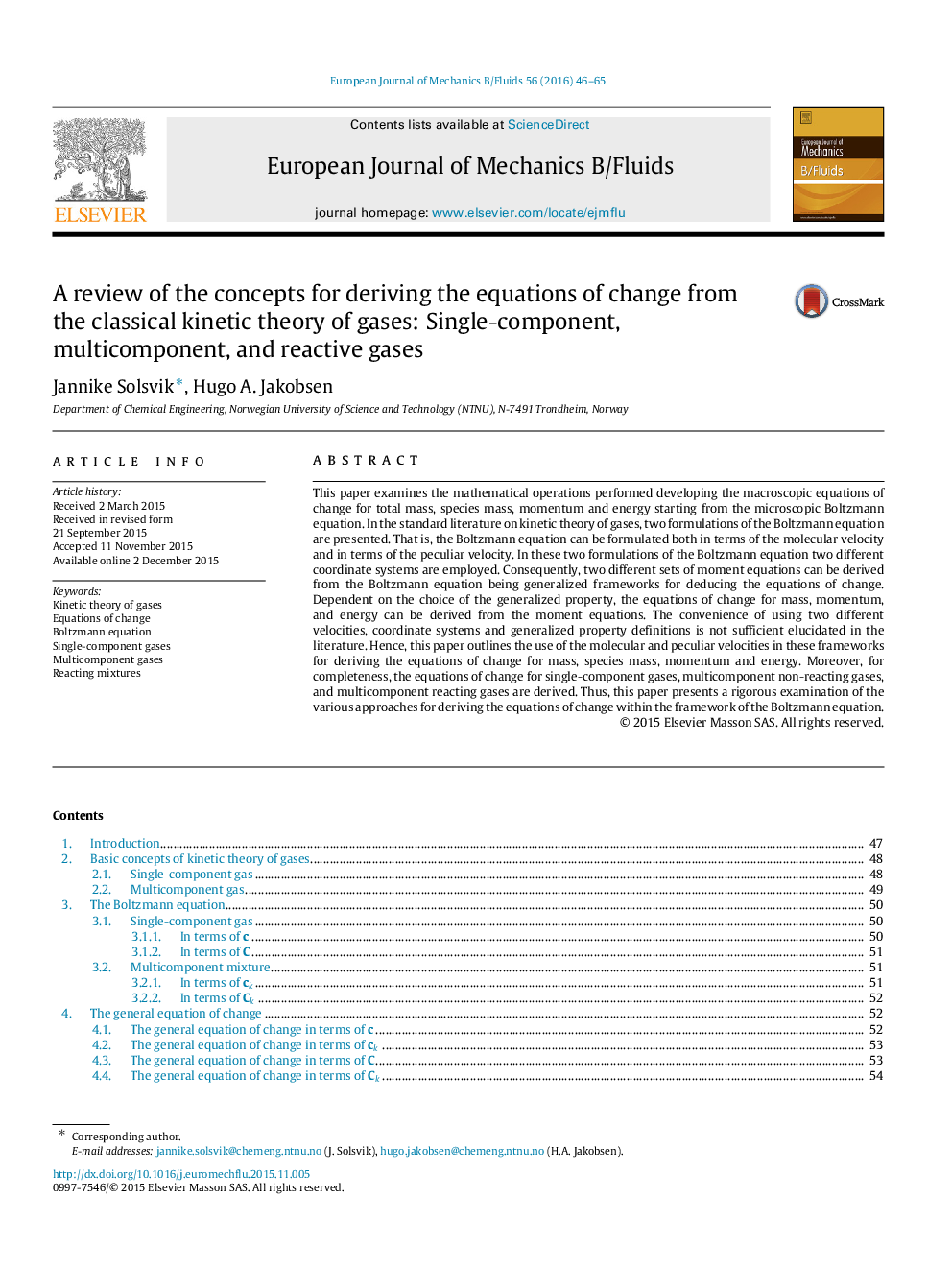| Article ID | Journal | Published Year | Pages | File Type |
|---|---|---|---|---|
| 7051213 | European Journal of Mechanics - B/Fluids | 2016 | 20 Pages |
Abstract
This paper examines the mathematical operations performed developing the macroscopic equations of change for total mass, species mass, momentum and energy starting from the microscopic Boltzmann equation. In the standard literature on kinetic theory of gases, two formulations of the Boltzmann equation are presented. That is, the Boltzmann equation can be formulated both in terms of the molecular velocity and in terms of the peculiar velocity. In these two formulations of the Boltzmann equation two different coordinate systems are employed. Consequently, two different sets of moment equations can be derived from the Boltzmann equation being generalized frameworks for deducing the equations of change. Dependent on the choice of the generalized property, the equations of change for mass, momentum, and energy can be derived from the moment equations. The convenience of using two different velocities, coordinate systems and generalized property definitions is not sufficient elucidated in the literature. Hence, this paper outlines the use of the molecular and peculiar velocities in these frameworks for deriving the equations of change for mass, species mass, momentum and energy. Moreover, for completeness, the equations of change for single-component gases, multicomponent non-reacting gases, and multicomponent reacting gases are derived. Thus, this paper presents a rigorous examination of the various approaches for deriving the equations of change within the framework of the Boltzmann equation.
Related Topics
Physical Sciences and Engineering
Chemical Engineering
Fluid Flow and Transfer Processes
Authors
Jannike Solsvik, Hugo A. Jakobsen,
